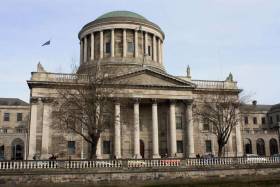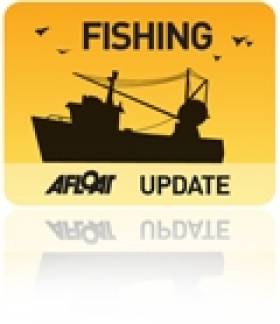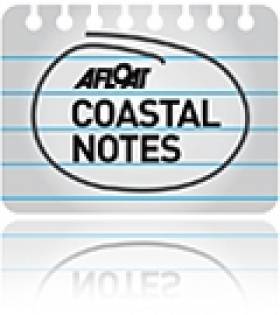Displaying items by tag: salmon farm
Connemara Salmon Farm Freshwater Plans To Face High Court Review
#FishFarm - Permission granted for a salmon farm to extract water from a Connemara lake is facing a judicial review, as the Connacht Tribune reports.
An Bord Pleanála recently greenlit plans by Bradán Beo Teo, the region’s biggest producing salmon farm enterrprise, to extract fresh water from Loch an Mhuilinn for cleaning and disease treatment purposes after the company was previously blocked by Galway County Council.
But now local environmental activists are behind a proposed High Court review of the way the planning board arrived at its decision.
The Connacht Tribune has more on the story HERE.
Council Warns Connemara Salmon Farms Over Illegal Freshwater Extraction
#FishFarm - Connemara's salmon farming industry has vowed to ensure it abides by all statutory regulations following the recent discovery of illegal freshwater extraction in the Kilkieran Bay area.
As Galway Bay FM reports, Galway County Council has been moved to write to the region's biggest salmon farming companies over their use of freshwater for disease control in their salmon farms.
This was prompted by the discovery of an illegal pumping system at Loch An Mhuilinn, similar to the unauthorised pipeline from Loughaunore that got Marine Harvest Ireland into trouble with the authorities last year.
Marine Harvest, along with the region's biggest producer Bradán Beo Teo, was sent a warning letter by the council in the wake of the latest find, for which it is not yet known who is responsible. The Connacht Tribune has more on the story HERE.
Fish Farm Taps Lake For Disease Treatment Without Permission
#FishFarm - No council permission was given for a pipeline laid last month to extract water from Loughaunore to a nearby salmon farm in Kilkieran Bay in Co Galway, as the Connemara Journal reports.
Marine Harvest Ireland installed the 3.25km pipeline to help treat an outbreak of amoebic gill disease among its farmed salmon, but did so before a decision was made by Galway County Council over an exemption for the project from the usual planning permission requirements.
It's also claimed by Irish Water that despite a claim in Marine Harvest Ireland's Section 5 application that it has an 'agreement' with the new water metering body, no such agreement exists.
While extraction of potentially millions of litres of water from the lake has paused for now, local campaigners argue that the situation is typical of problems connected with fish farming - the subject of much controversy in the county since the furore over the planned large-scale organic salmon farm for the Aran Islands.
The Connemara Journal has much more on the story HERE.
Meeting for Bantry Bay Fish Farm Opponents Tonight
#COASTAL NOTES - Bantry Bay has reached its capacity for salmon farming, says the committee formed to oppose a proposed new facility at Shot Head.
Save Bantry Bay has called a public meeting for supporters tonight (24 March) at Eccles Hotel in Glengarrif, Co Cork, starting at 8.15pm - where chairman Kieran O'Shea will give a presentation on the group's "wide-ranging objections", as The Fish Site reports.
Minister for the Marine Simon Coveney is currently considering the licence application for Marine Harvet's proposed salmon farm at Shot Head in Adrigole.
Concerns among the committee's members include the potential spoiling of the area's natural beauty having a knock-on effect on tourism, and the environmental consequences of algae blooms from nitrogen and phosphorous waste.
Local fisherman fear that a fish farm of more than 100 acres would see the closing off of part of an "important ground for shrimp and prawn".
Possible infection of wild salmon in local river systems by sea lice from farmed salmon is also an issue, with the Environmental Impact Statement for Shot Head highlighting an outbreak of lice at Marine Harvest's facility in Roancarrig two years ago.
The Fish Site has more on the story HERE.
- Coastal Notes
- Fishing
- Bantry Bay
- Co Cork
- fish farm
- salmon farm
- Shot Head
- Adrigole
- Glengarrif
- Eccles Hotel
- Save Bantry Bay
- Minister for the Marine
- Simon Coveney
- Marine Harvest
- tourism
- environment
- algae blooms
- nitrogen
- phosphorous
- waste
- shrimp
- prawn
- infection
- Wild Salmon
- sea lice
- environmental impact statement
- Roancarrigh


























































